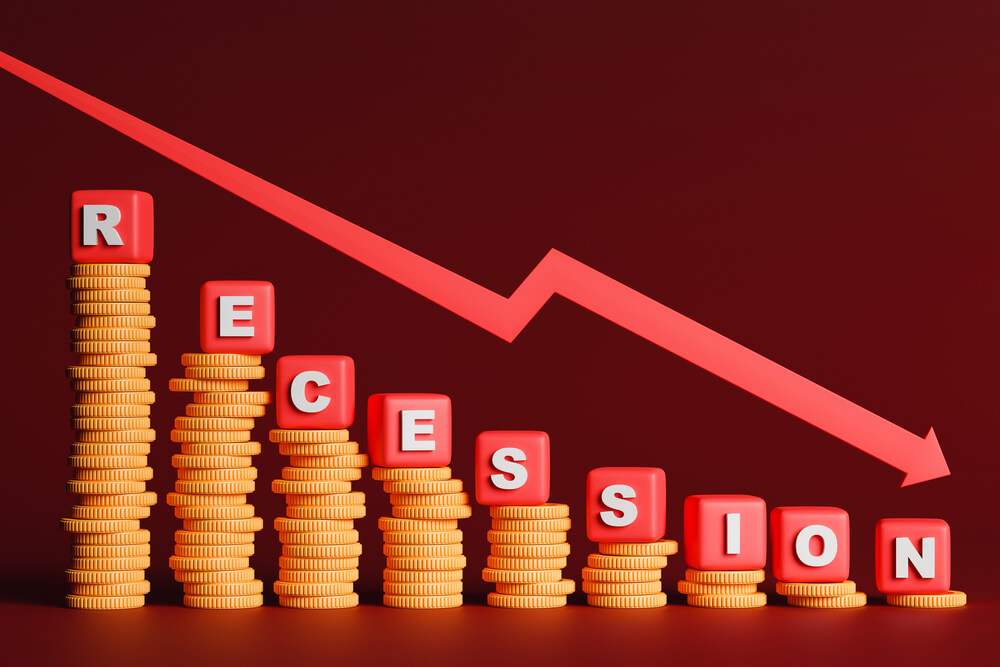JPMorgan Sees Slow Growth Ahead But No Recession in 2025
18.05.2025 10:00 1 min. read Alexander Stefanov
JPMorgan Chase’s chief global strategist has expressed a cautious view of the U.S. economy, suggesting that while a full recession may be avoided, the near-term outlook points to slow and uneven growth.
The bank’s internal forecasts have shifted in recent months, largely due to new fiscal measures and delayed economic impacts from recent legislation.
A large tax package scheduled to provide economic stimulus in 2026, along with some minor effects beginning in 2025, is expected to provide a cushion that reduces the likelihood of a recession this year.
Despite this support, several risk factors remain. Ongoing tariff pressures, tightening conditions in the government sector, and the resumption of student loan repayments are combining to place strain on consumer spending. While consumers have shown resilience, the accumulation of financial stress is beginning to weigh on broader demand.
Economic activity is not expected to contract significantly, but growth will likely be sluggish throughout the year. JPMorgan’s assessment suggests that while the risk of a downturn has lessened, momentum in the economy will remain fragile. Inflationary concerns stemming from trade policies and global uncertainty add further complexity to the outlook.
Overall, the bank sees the U.S. economy navigating through a period of slow growth rather than entering a formal recession, driven by temporary fiscal support and moderate resilience in key sectors.
-
1
U.S. PCE Inflation Rises for First Time Since February, Fed Rate Cut Likely Delayed
27.06.2025 18:00 1 min. read -
2
Key U.S. Economic Events to Watch Next Week
06.07.2025 19:00 2 min. read -
3
Gold Beats U.S. Stock Market Over 25 Years, Even With Dividends Included
13.07.2025 15:00 1 min. read -
4
U.S. Announces Sweeping New Tariffs on 30+ Countries
12.07.2025 16:30 2 min. read -
5
US Inflation Heats Up in June, Fueling Uncertainty Around Fed Cuts
15.07.2025 16:15 2 min. read
US Inflation Heats Up in June, Fueling Uncertainty Around Fed Cuts
U.S. inflation accelerated in June, dealing a potential setback to expectations of imminent Federal Reserve rate cuts.
Gold Beats U.S. Stock Market Over 25 Years, Even With Dividends Included
In a surprising long-term performance shift, gold has officially outpaced the U.S. stock market over the past 25 years—dividends included.
U.S. Announces Sweeping New Tariffs on 30+ Countries
The United States has rolled out a broad set of new import tariffs this week, targeting over 30 countries and economic blocs in a sharp escalation of its trade protection measures, according to list from WatcherGuru.
Key U.S. Economic Events to Watch Next Week
After a week of record-setting gains in U.S. markets, investors are shifting focus to a quieter yet crucial stretch of macroeconomic developments.
-
1
U.S. PCE Inflation Rises for First Time Since February, Fed Rate Cut Likely Delayed
27.06.2025 18:00 1 min. read -
2
Key U.S. Economic Events to Watch Next Week
06.07.2025 19:00 2 min. read -
3
Gold Beats U.S. Stock Market Over 25 Years, Even With Dividends Included
13.07.2025 15:00 1 min. read -
4
U.S. Announces Sweeping New Tariffs on 30+ Countries
12.07.2025 16:30 2 min. read -
5
US Inflation Heats Up in June, Fueling Uncertainty Around Fed Cuts
15.07.2025 16:15 2 min. read


